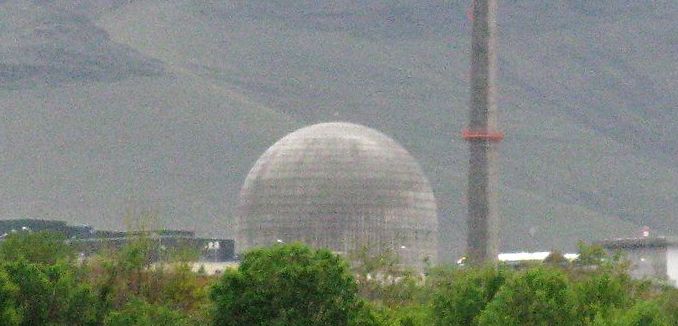The United States agreed last month to buy 32 tons of excess “heavy water,” a byproduct of nuclear enrichment, from Iran, which had produced more heavy water than the agreed-upon limits of the nuclear deal it signed with global powers last year. But the fact that Iran kept enriching after it reached its heavy water limit may prove critics of the deal right, Olli Heinonen, the former deputy director-general of the International Atomic Energy Agency (IAEA), wrote in a policy brief for the Foundation for Defense of Democracies last Thursday.
Heinonen pointed out a number of lapses in an IAEA report on a shipment of Iranian heavy water. In deviation from standard practice, the IAEA report took Iran’s word that it had shipped out 20 tons of heavy water to Oman, and did not confirm that the purchaser of the heavy water had actually received it.
Regardless of the disposition of the heavy water in question, Heinonen wrote, “the real concern is Iran’s excess production above the agreed-upon limits….Iran should have simply halted heavy water production until it was able to comply with the agreement. After all, the JCPOA’s nuclear inventory limits were set for a purpose. Iran is continuously enriching uranium and producing heavy water, and exceeding the JCPOA’s limits threatens to cut its nuclear breakout time – namely the time needed to produce material for a nuclear bomb.”
The Institute for Science and International Security, a think tank that studies nuclear proliferation, made similar observations on Twitter.
1/4 USA should be ashamed to be encouraging Iranian sales of heavy water, a controlled nuclear material
— Inst for Science (@TheGoodISIS) April 25, 2016
2/4 Iran is not in NSG; it is not a responsible supplier; it is a criminal state with respect to export control regimes
— Inst for Science (@TheGoodISIS) April 25, 2016
3/4 If Iran cannot find buyers for HW, so much the better. It should not produce any more after reaching the JCPOA cap
— Inst for Science (@TheGoodISIS) April 25, 2016
4/4 The JCPOA does not promise buyers of HW; This USA action is unwise and reckless
— Inst for Science (@TheGoodISIS) April 25, 2016
Is this Iran heavy water purchase even legal? Should the U.S. Congress vote to block it?
— Inst for Science (@TheGoodISIS) April 25, 2016
Rep. Mike Pompeo (R – Kan.) introduced a bill last week to prohibit future purchases of Iranian heavy water. He raised a number of concerns, including the possibility that the money from the purchase of heavy water could be used to expand Iran’s nuclear program or support its global terror network. “By purchasing heavy water produced in Iran for use at a U.S. national laboratory, President Obama is encouraging future Iranian breaches,” Pompeo said in a statement.
The Obama administration has defended Iran in the past from charges that it had violated the commitments it had made in the nuclear deal. Iran was prohibited from testing advanced centrifuges under the Joint Plan of Action, an interim nuclear deal, but the IAEA found in November 2014 that Iran had broken the agreement by feeding uranium oxide into an advanced centrifuge. The administration dismissed the violation in March 2015, saying that the incident was an error rather than a deliberate violation.
Last June, just before the nuclear deal was agreed upon, The New York Times reported that Iran’s stockpile of low-enriched uranium was too high. The administration responded by attacking the Times, saying that the report was “not true.” The Institute for Science and International Security criticized the administration’s response to the report, observing, “it tends to confirm the views of critics that future violations of a long term deal will be downplayed for the sake of generating or maintaining support for the deal.”
[Photo: Nanking2010 / WikiCommons ]




